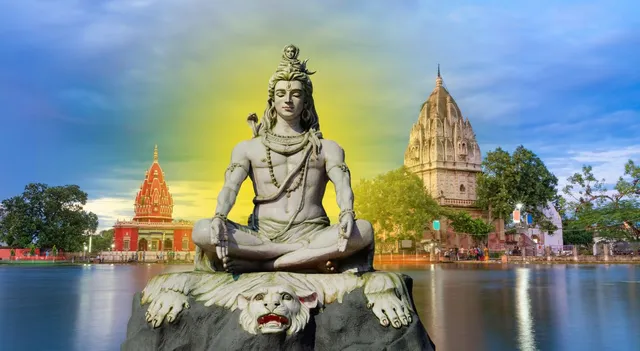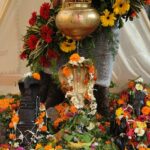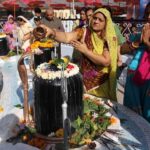Sawan Shivratri is a special and spiritual day for millions of Hindus around the world. It is celebrated during the holy month of Sawan (Shravan), which is dedicated to Lord Shiva — the God of destruction and transformation. But what makes Sawan Shivratri so important? What is the story behind this sacred night, and how is it observed by devotees?
In this blog, you will discover the history, significance, rituals, and answers to common questions about Sawan Shivratri in a simple and human-friendly way.
What is Sawan Shivratri?
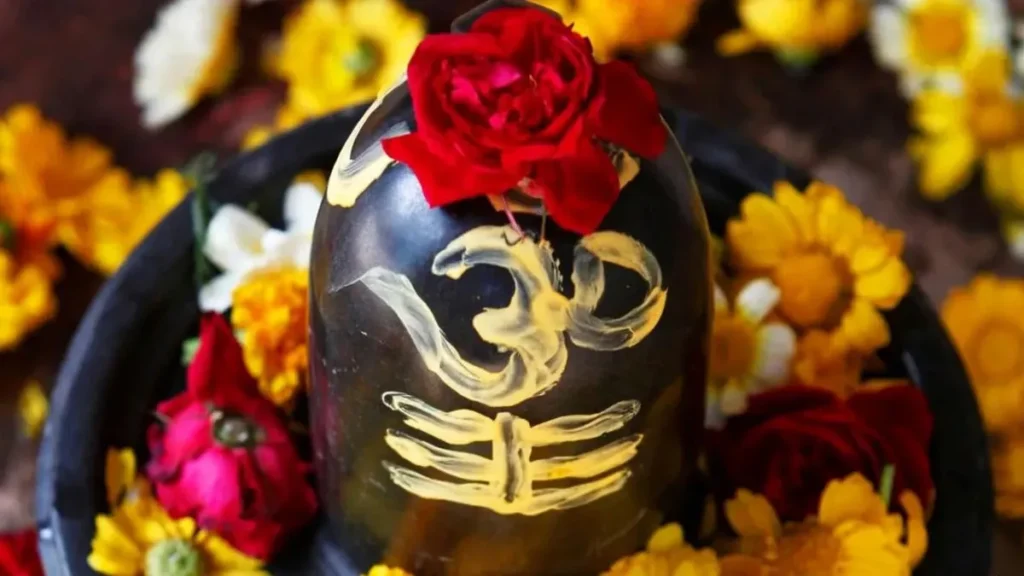
Sawan Shivratri is observed on the Chaturdashi (14th day) of the Krishna Paksha (waning moon) in the month of Shravan, usually falling in July or August. It is one of the most powerful nights for Shiva worship, especially because it occurs during the most auspicious month devoted to Him.
Unlike Mahashivratri, which is celebrated once a year, Sawan Shivratri occurs during the Sawan month and holds a deep connection with the divine energy of Lord Shiva.
The Story Behind Sawan Shivratri
1. The Churning of the Ocean – Samudra Manthan
One of the most popular legends associated with Sawan Shivratri comes from the story of Samudra Manthan (the churning of the ocean). According to Hindu mythology, the gods (Devas) and demons (Asuras) churned the ocean to obtain Amrit (nectar of immortality).
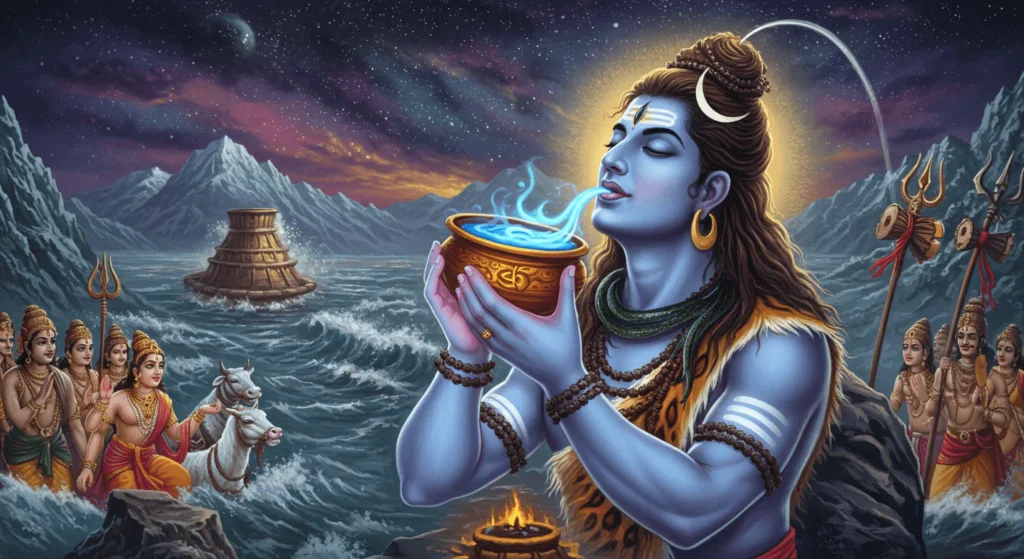
However, during the process, a deadly poison called Halahal emerged from the ocean. It was so toxic that it could destroy all creation. Terrified, the gods and demons prayed to Lord Shiva for help.
Lord Shiva, in an act of great selflessness, drank the entire poison to save the universe. His wife, Goddess Parvati, quickly held His throat to stop the poison from reaching His heart. This turned Shiva’s throat blue, earning Him the name Neelkanth (the blue-throated one).
It is believed that this divine act took place on the night of Sawan Shivratri, and hence, the day is celebrated with devotion, prayer, and gratitude.
The Marriage of Shiva and Parvati
Another belief is that Sawan Shivratri marks the divine union of Lord Shiva and Goddess Parvati. Parvati, after years of intense meditation and fasting during the Sawan month, pleased Lord Shiva and was accepted by Him as His consort.
Their marriage symbolizes the perfect blend of spiritual strength, love, and devotion. This story is especially important for unmarried girls, who observe fasts on this day to seek a life partner as devoted as Lord Shiva.
Rituals Performed on Sawan Shivratri
The way Sawan Shivratri is celebrated can vary slightly depending on region and tradition, but here are the most common rituals and practices:
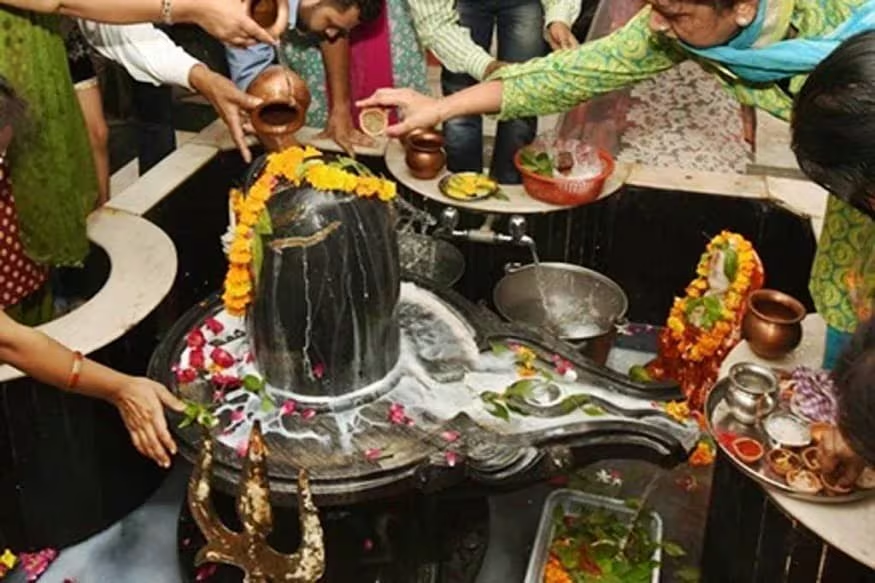
1. Fasting (Vrat)
Many devotees observe a fast throughout the day. Some follow a strict nirjala vrat (without food or water), while others consume only fruits, milk, or water. The fast is seen as a way to cleanse the body and connect spiritually with Lord Shiva.
2. Abhishekam of the Shivling
The Shivling is bathed with water, milk, curd, ghee, honey, and sugar in a special ritual known as Abhishek. Devotees also offer bel patra, datura, and white flowers, which are considered sacred to Shiva.
3. Chanting of Shiva Mantras
Devotees chant powerful mantras like:
“Om Namah Shivaya”
“Maha Mrityunjaya Mantra”
These mantras are believed to protect from negative energies, improve health, and bring inner peace.
4. Night Vigil (Jagran)
Many Shiva temples remain open all night, and devotees gather to sing bhajans, meditate, and offer prayers. It is believed that staying awake and worshipping Shiva during the night brings special blessings.
5. Special Pujas and Temple Visits
On this day, temples of Lord Shiva, especially places like Kashi Vishwanath (Varanasi), Mahakaleshwar (Ujjain), and Baidyanath Dham (Deoghar) witness huge gatherings of devotees offering their prayers and seeking blessings.
Why is the Sawan Month So Important?
The Shravan month is considered extremely auspicious in Hinduism. According to Vedic astrology, during this time, the energy of the moon and planets align in a way that enhances spiritual growth. Since Lord Shiva is considered the Lord of the Moon, this period is seen as the most favorable time for worshipping Him.
That’s why every Monday of Sawan (known as Shravan Somvar) is also celebrated with fasting and prayers.
More Read
Benefits of Observing Sawan Shivratri
Brings peace, mental clarity, and spiritual strength
Helps in removing obstacles and negative karma
Prayers on this night are said to be 1000x more powerful
Unmarried girls pray for a loving and loyal partner
Married couples pray for a happy and long-lasting relationship
Frequently Asked Questions (FAQs)
A: Sawan Shivratri is a holy day dedicated to Lord Shiva. It is observed during the month of Sawan (Shravan) and is considered one of the most powerful nights for worship and prayer.
A: It is celebrated to remember the day when Lord Shiva drank the deadly poison (Halahal) that came out during the churning of the ocean (Samudra Manthan) to save the world.
A: Yes, Sawan Shivratri is celebrated during the month of Sawan, while Maha Shivratri usually falls in February or March. Both are important, but Maha Shivratri is considered the biggest night of devotion to Lord Shiva.
A: People keep fasts, offer water, milk, and bel leaves to the Shivling, chant Shiva mantras, and stay awake at night to pray and meditate.


